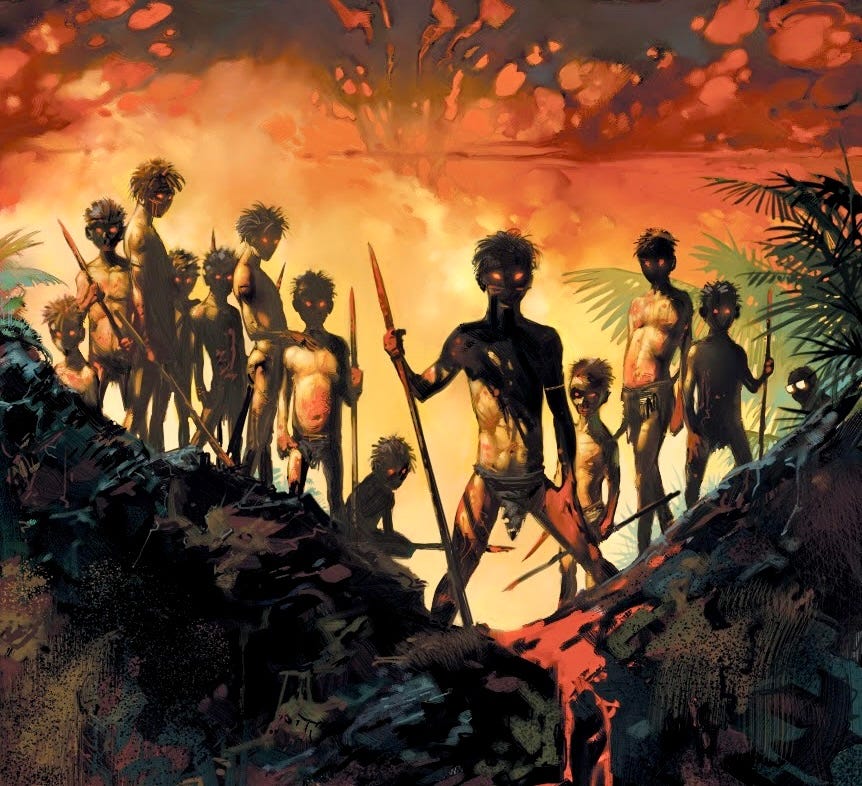Is Man Inherently Evil?
Lessons from "Lord of the Flies"
William Golding’s Lord of the Flies is one of the best-selling novels of the 20th century. It depicts the rapid descent into savagery that occurs when a group of boys is stranded on a deserted island, and offers reflections on how humans act in the state of nature.
But Golding’s novel is arguably just as inaccurate as it is shocking. Having grown tired of Victorian stories celebrating young men travelling the world and building civilization from savagery, Golding set out to write a book about “children on an island, [but] children who behave in the way children really would behave.”
The only problem is, in the closest real-world example to Lord of the Flies — when six Tongan boys were shipwrecked and forced to survive for 15 months on a deserted island — the outcome couldn’t have been any more different:
“By the time we arrived, the boys had set up a small commune with a food garden, hollowed-out tree trunks to store rainwater, a gymnasium with curious weights, a badminton court, chicken pens and a permanent fire, all from handiwork, an old knife blade and much determination.”
-Captain Peter Warner, who rescued the boys
Granted, surely not all castaway experiences are like this, but it at least goes to show that Golding’s dystopia isn’t an inevitability. In light of this then, how is it that Lord of the Flies remains such a famous and widely-read novel? The answer lies in the fact that even if it’s wrong on certain details, its reflections on groupthink, scapegoats, paranoia, fear, and evil are still hauntingly accurate.
Today, we explore what it can teach you about man’s innate capacity for evil — and critically, how to overcome it…
Keep reading with a 7-day free trial
Subscribe to The Culturist to keep reading this post and get 7 days of free access to the full post archives.




